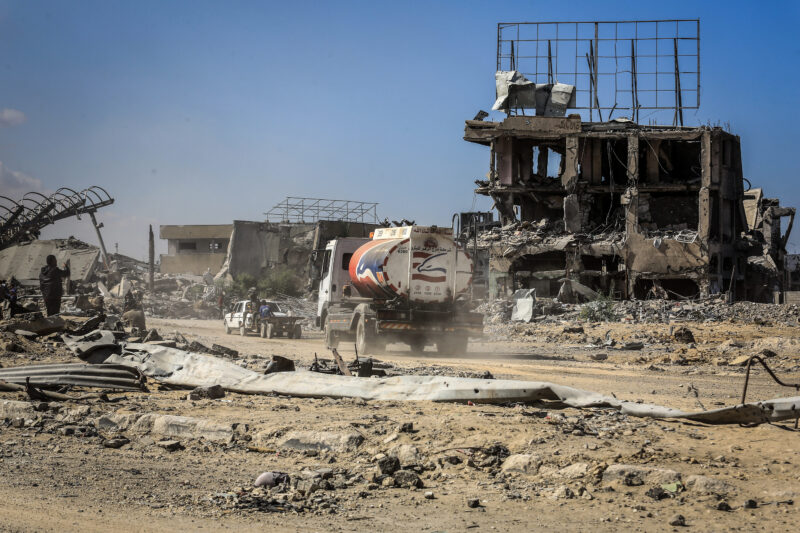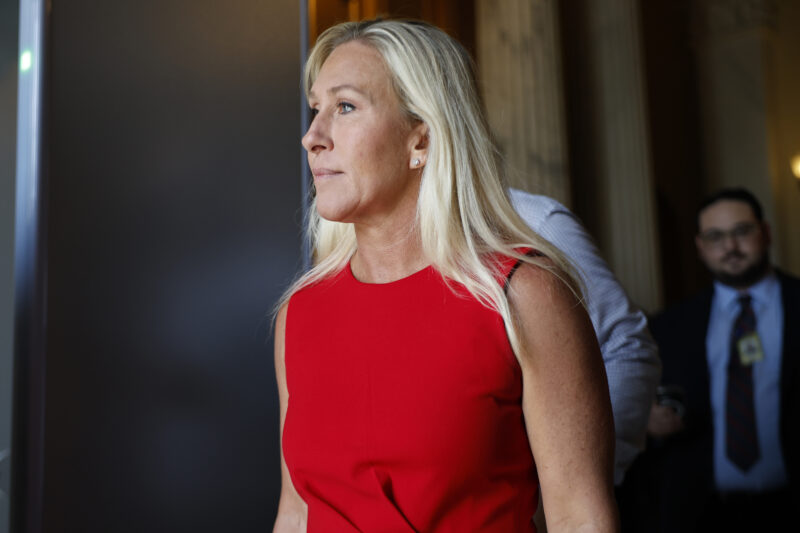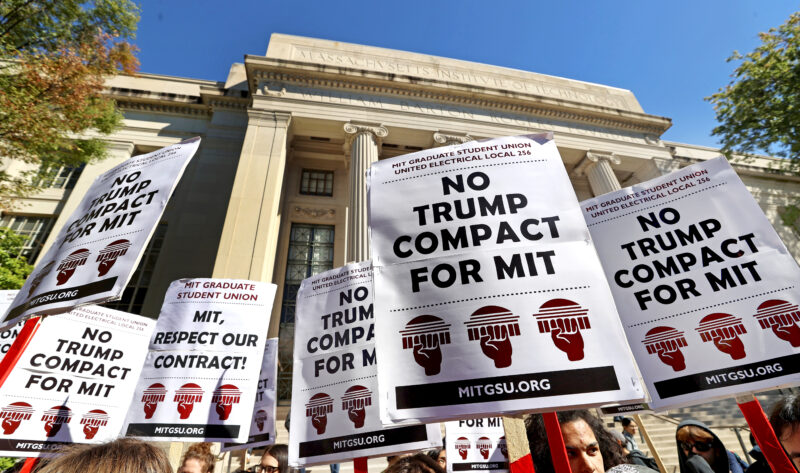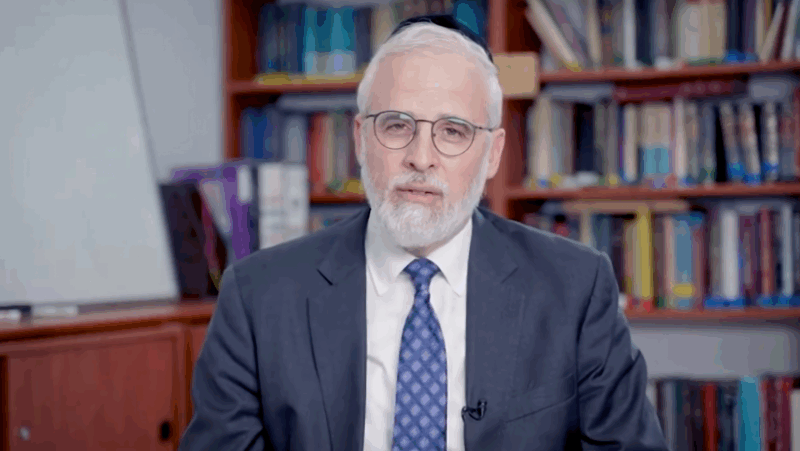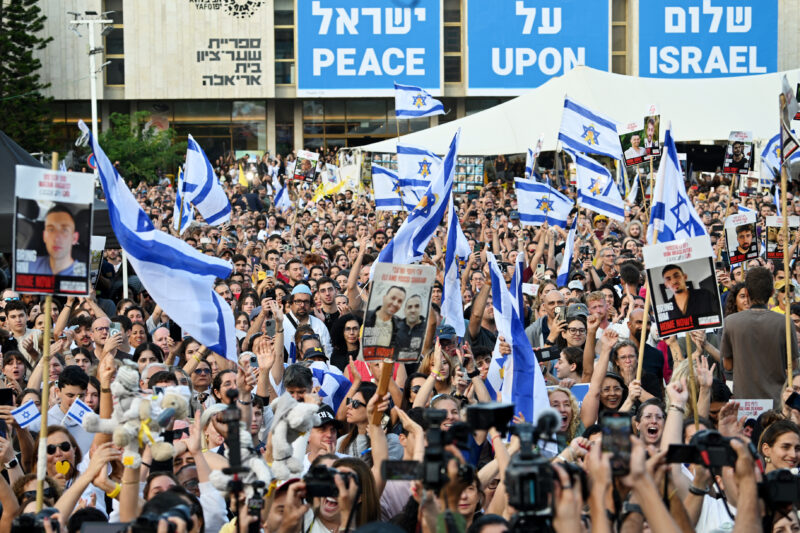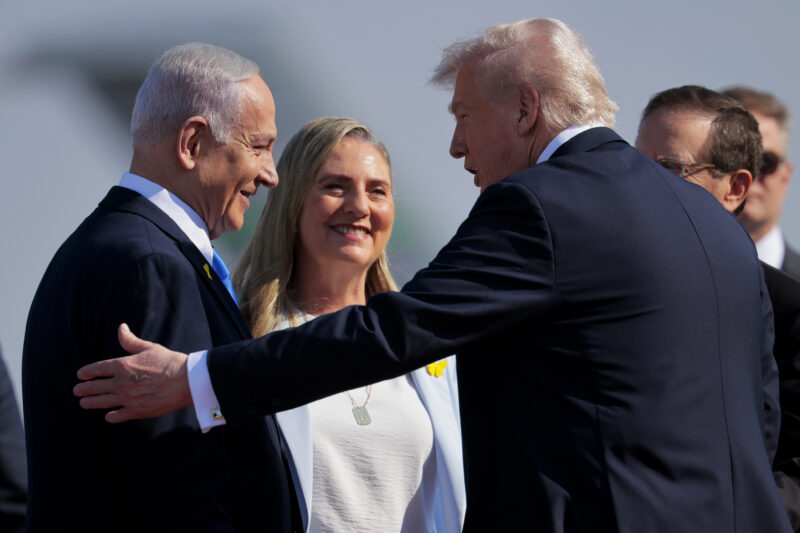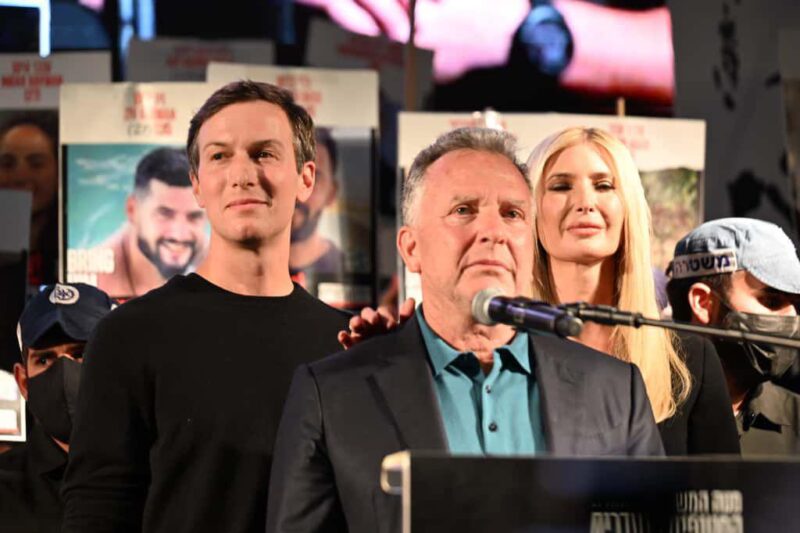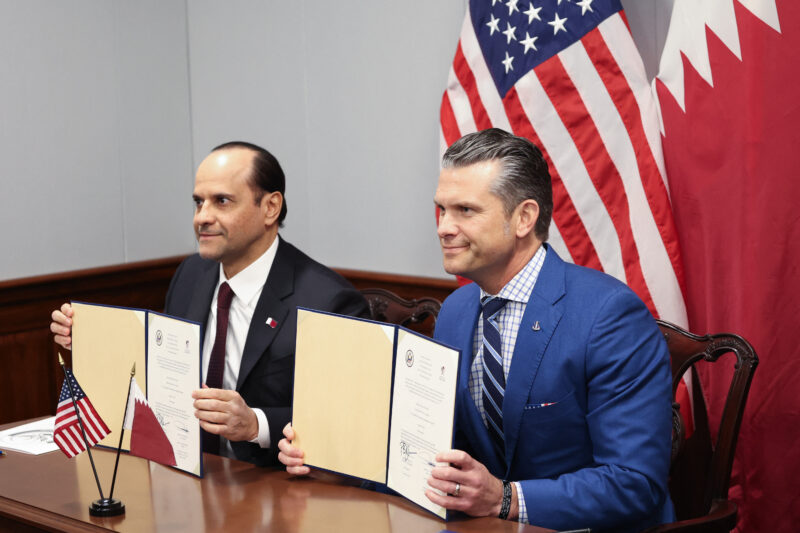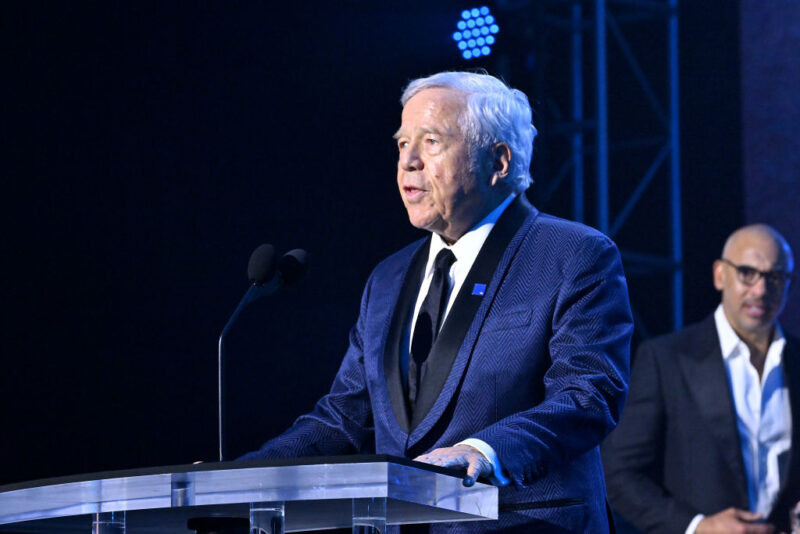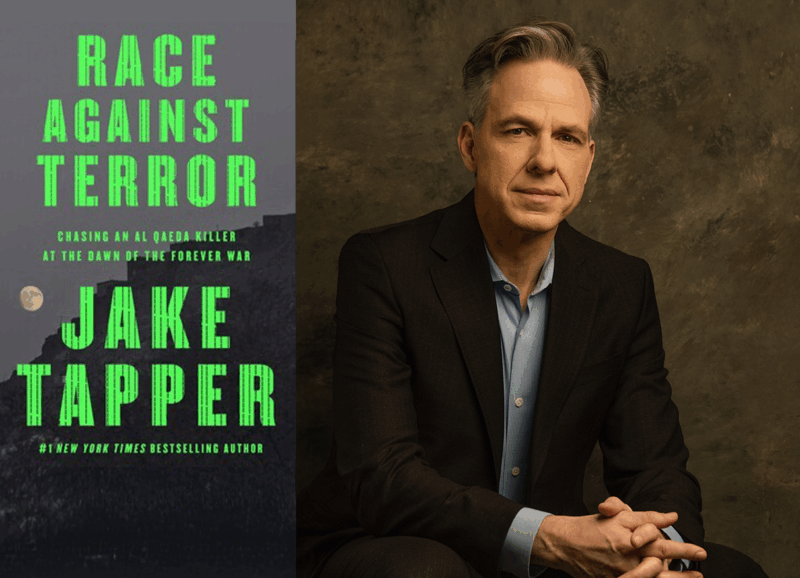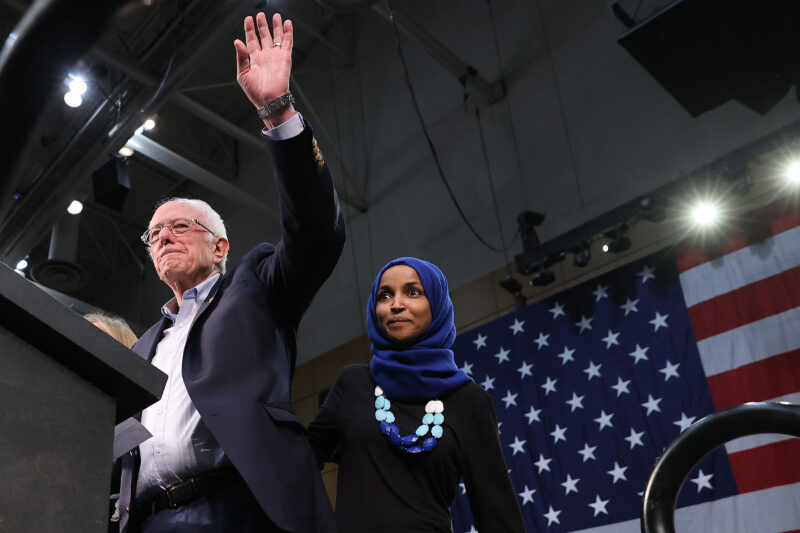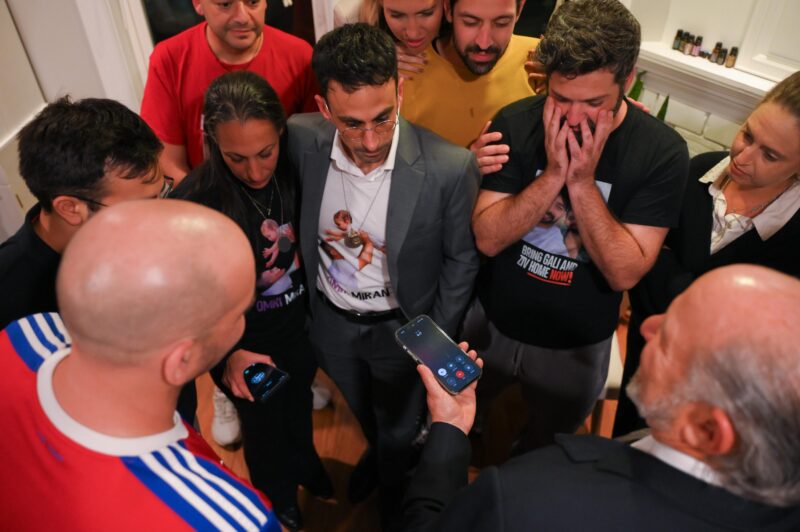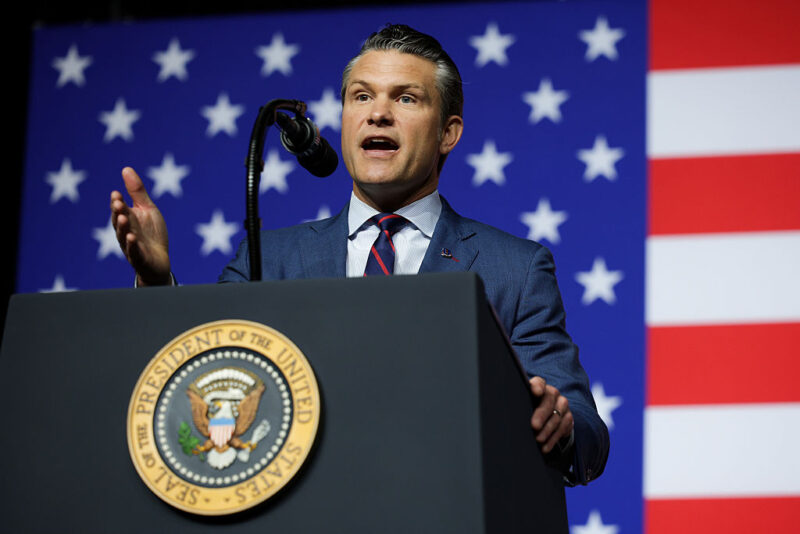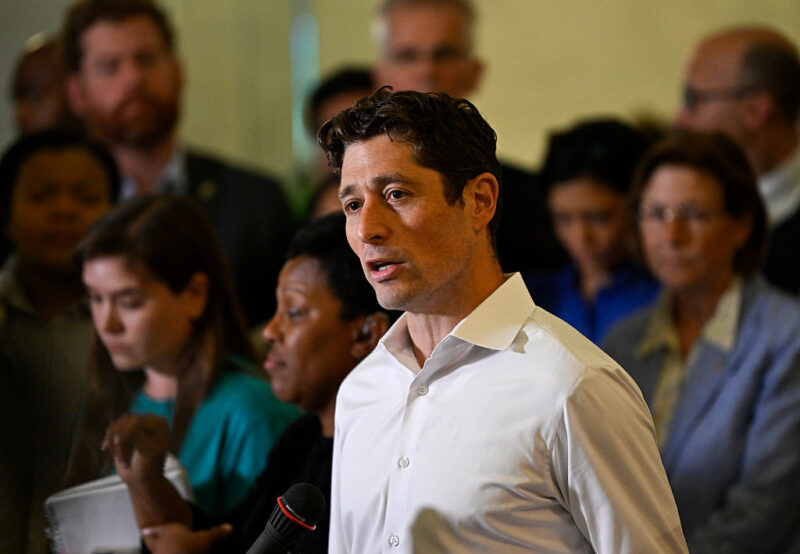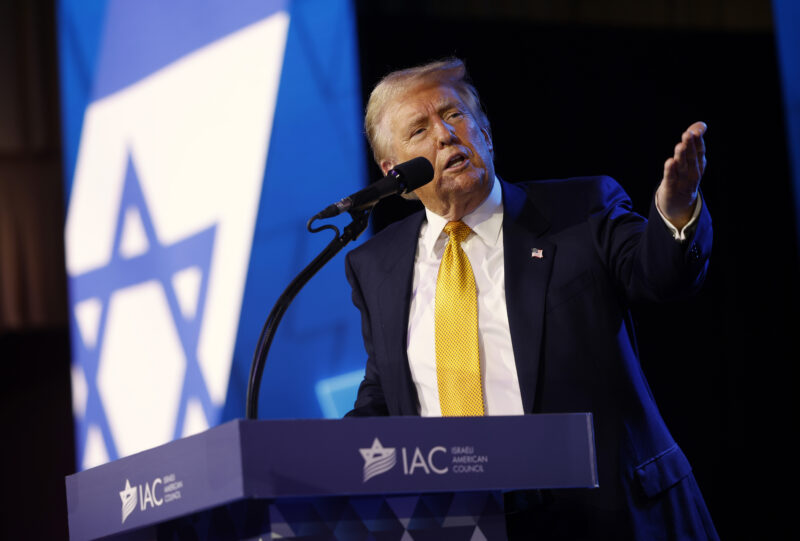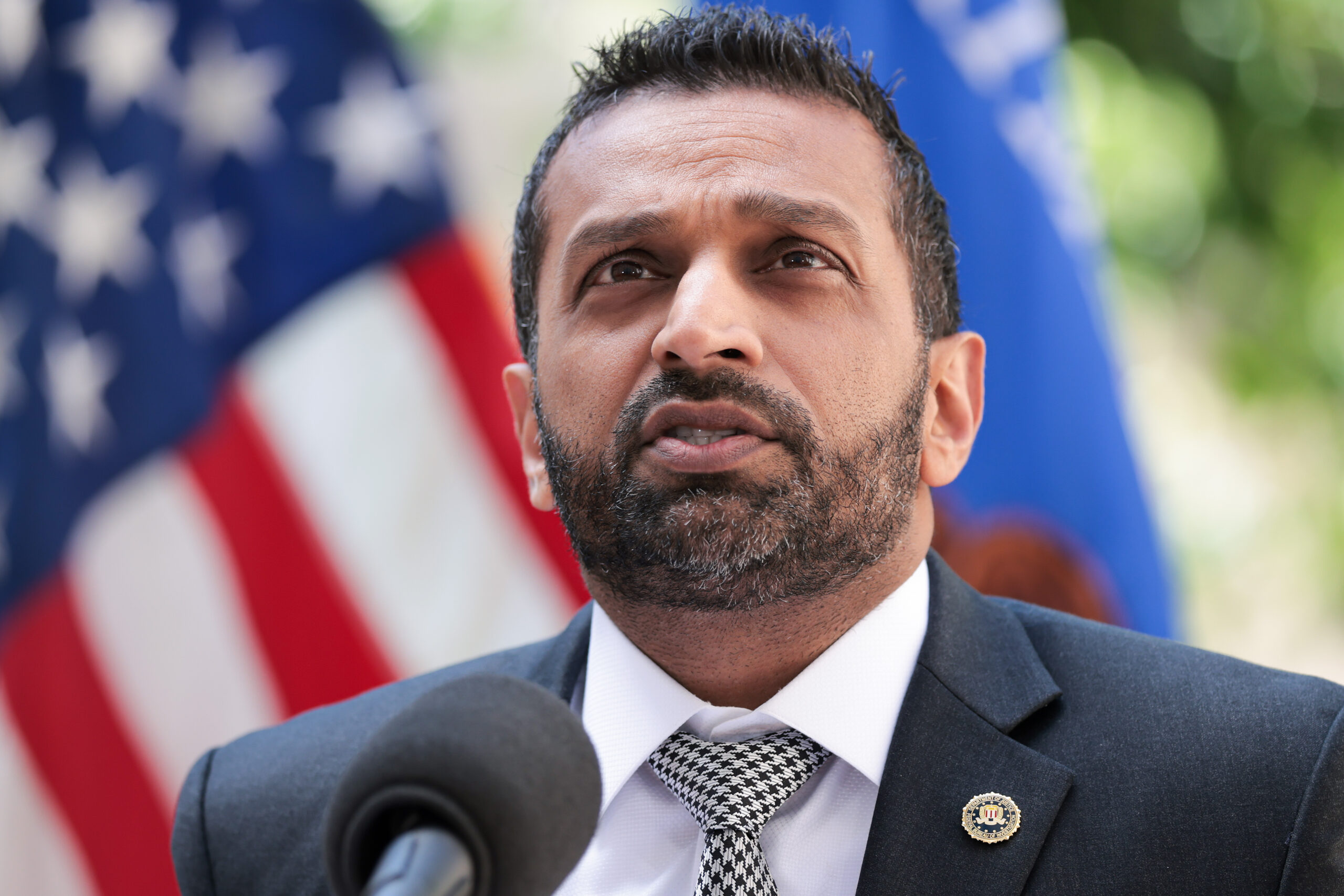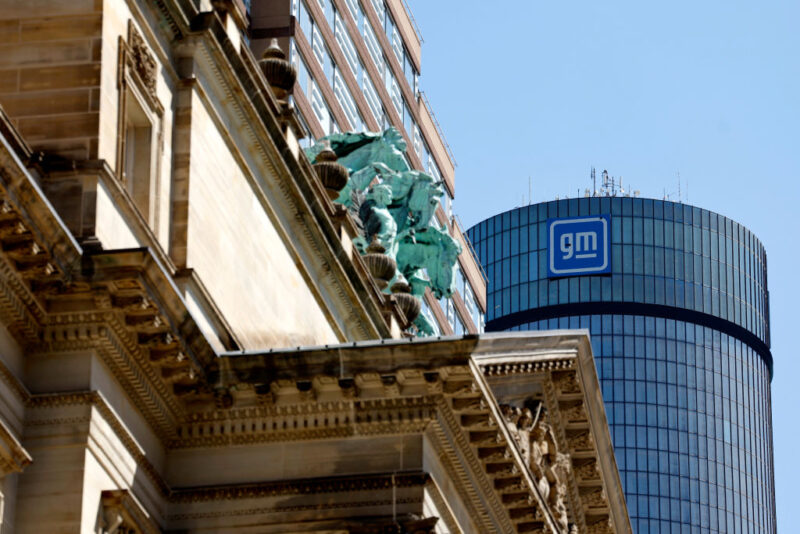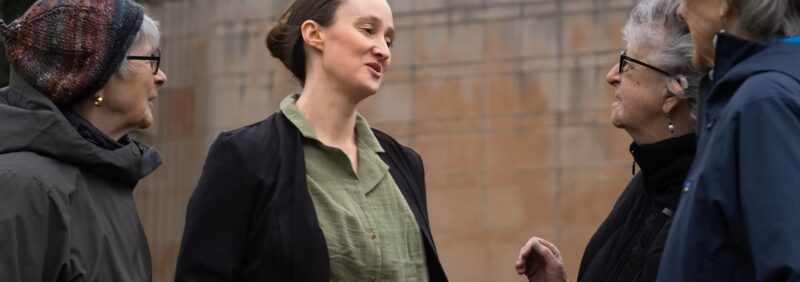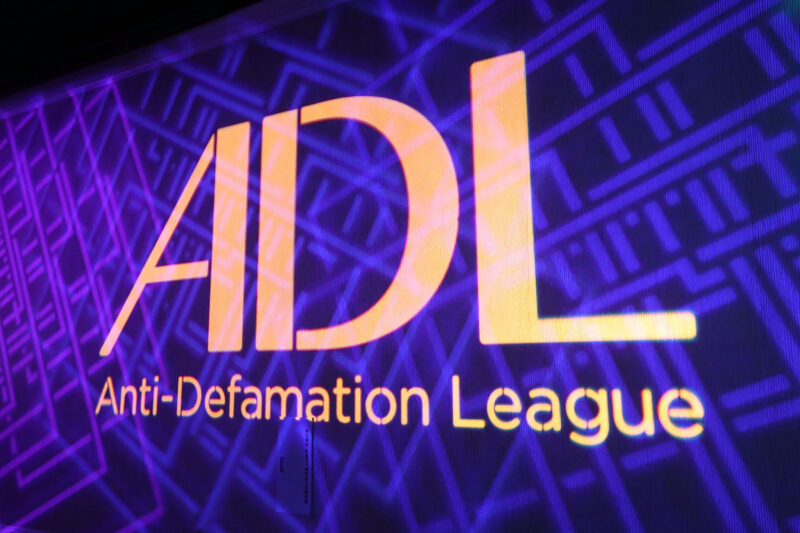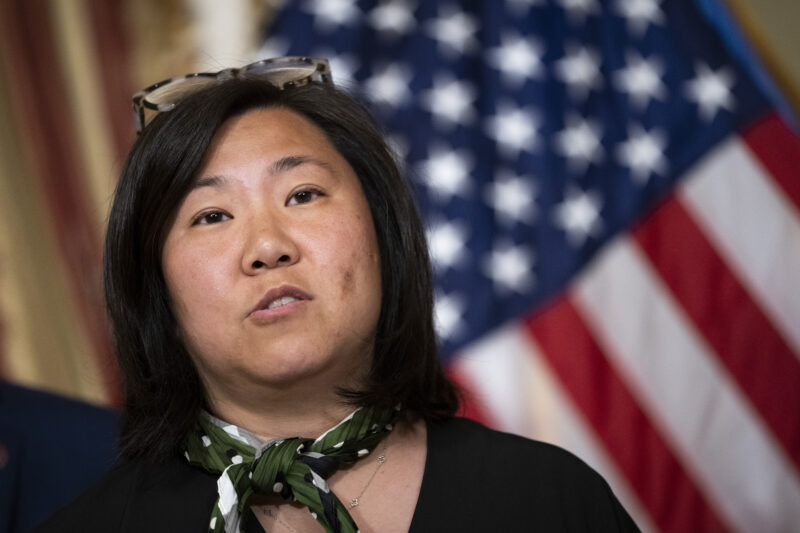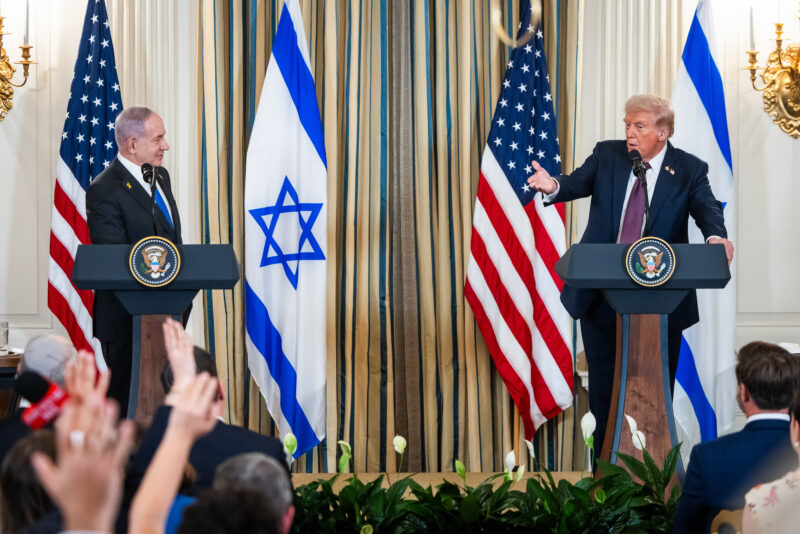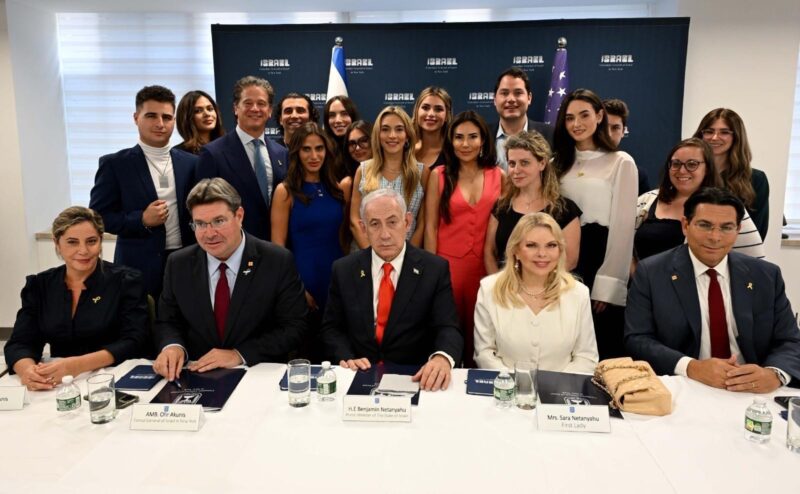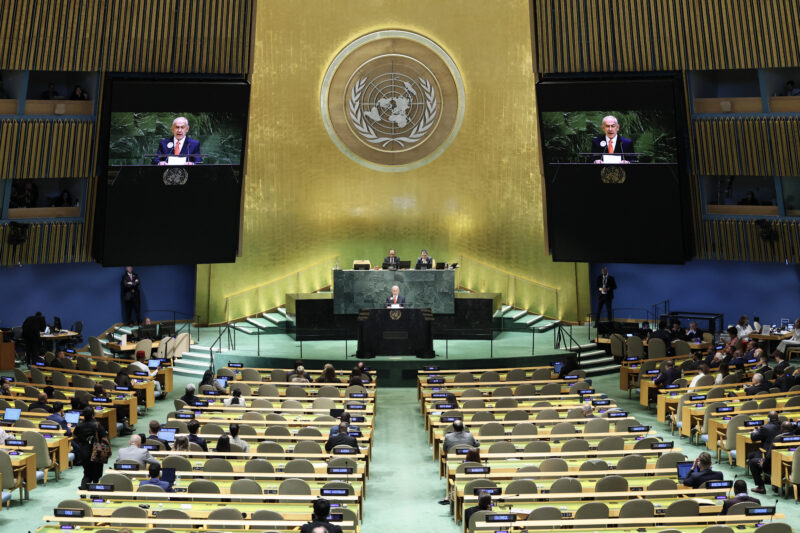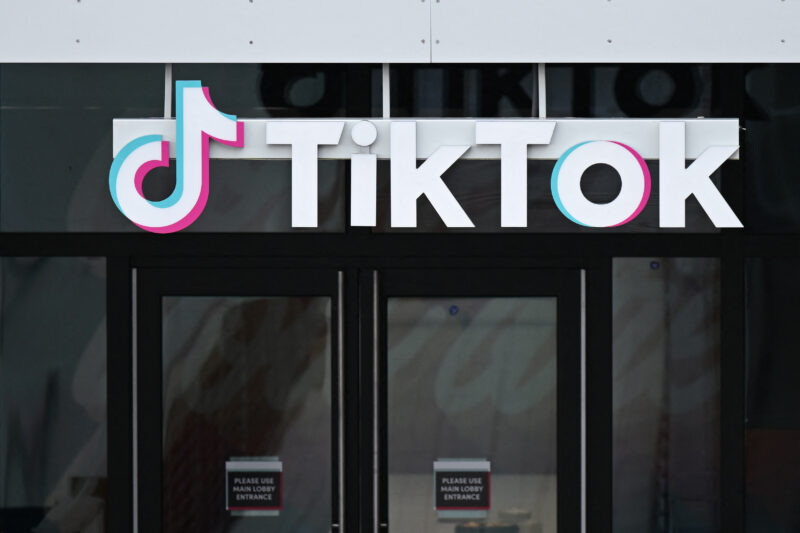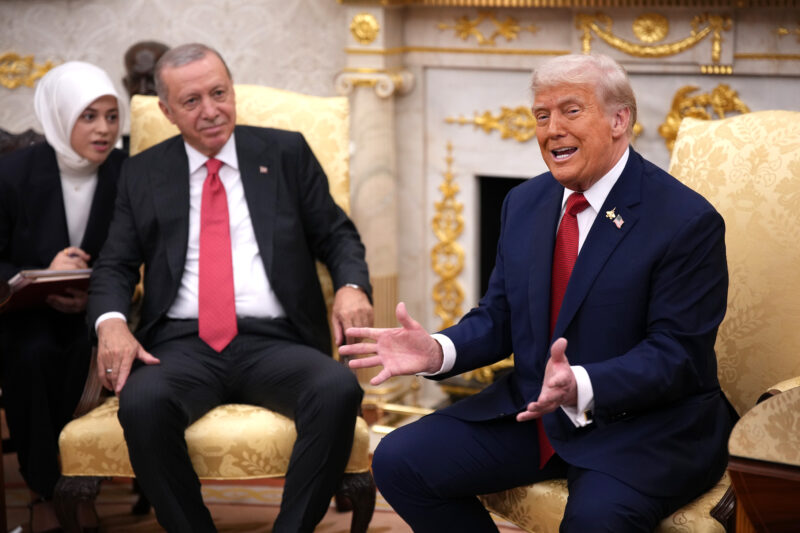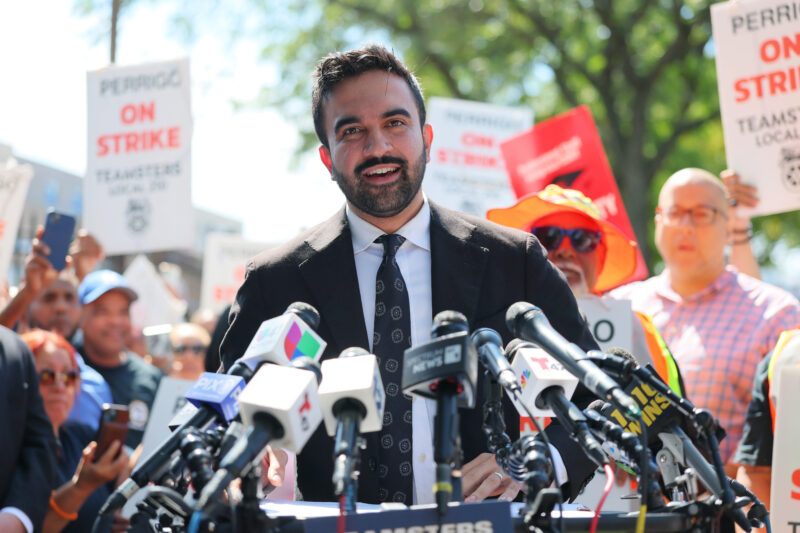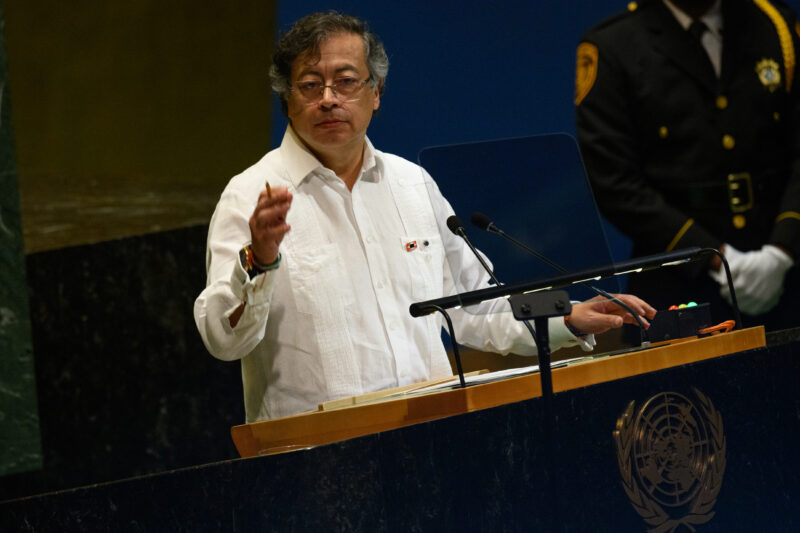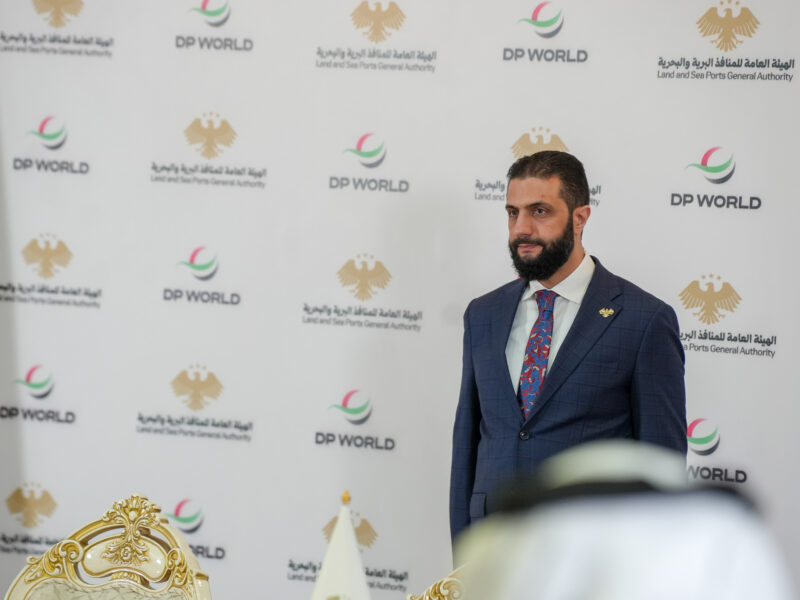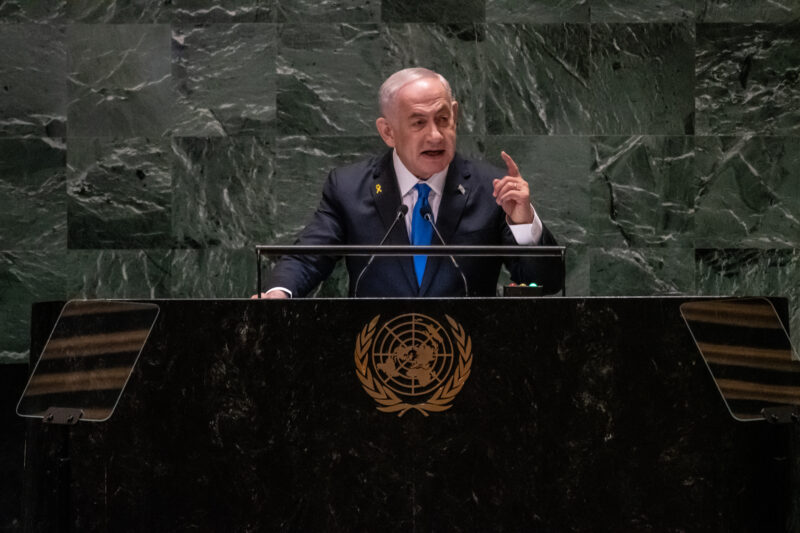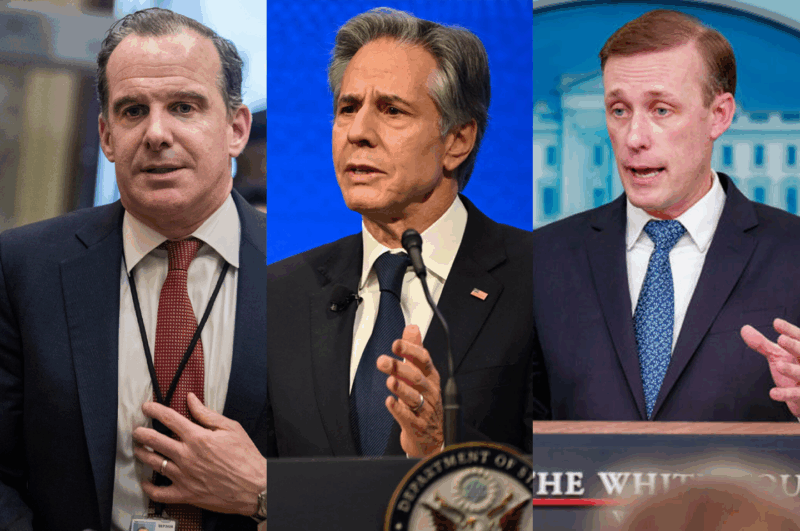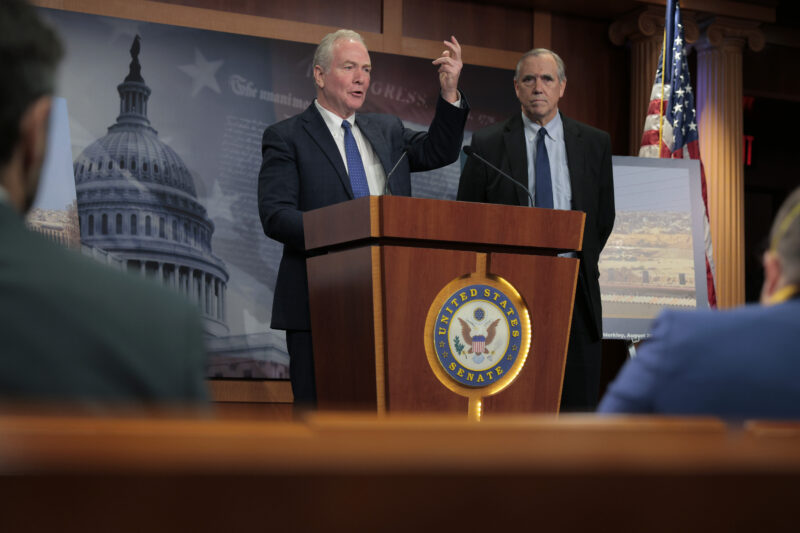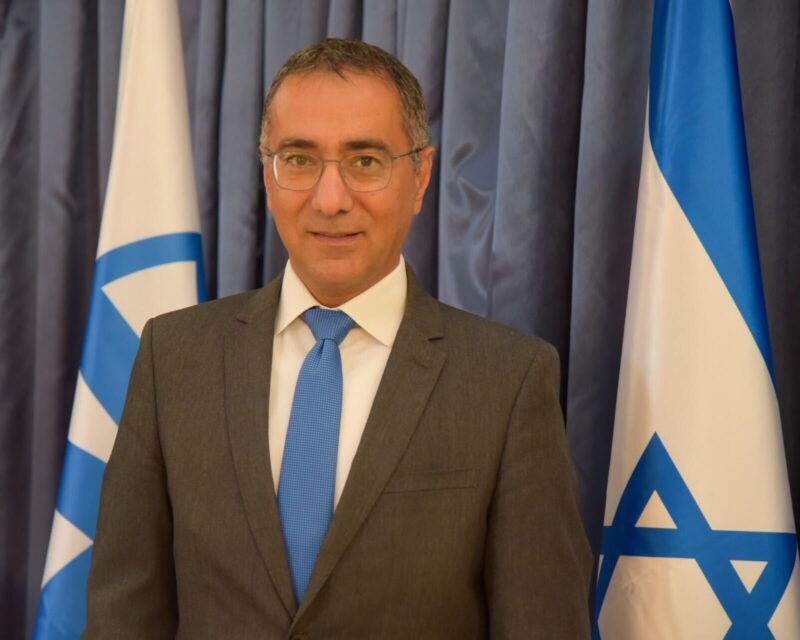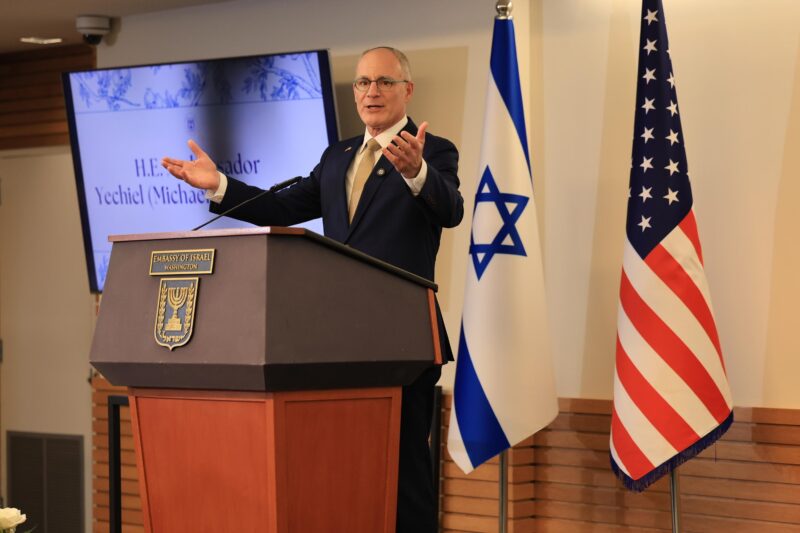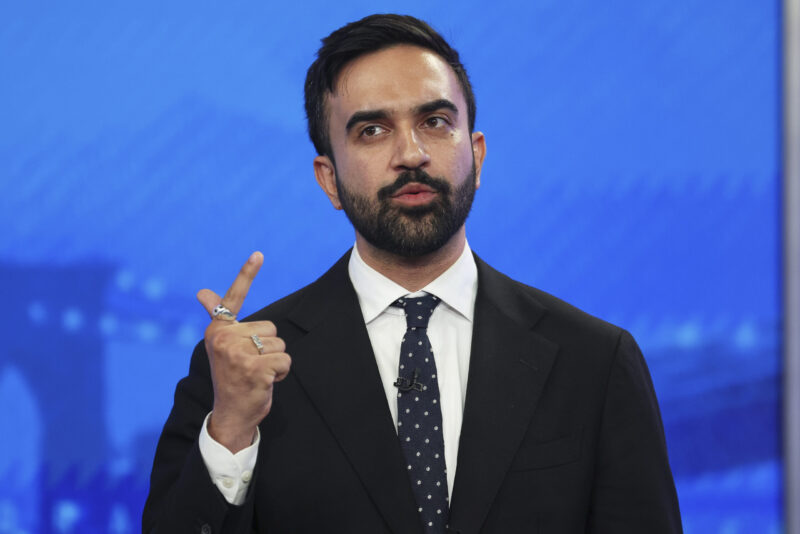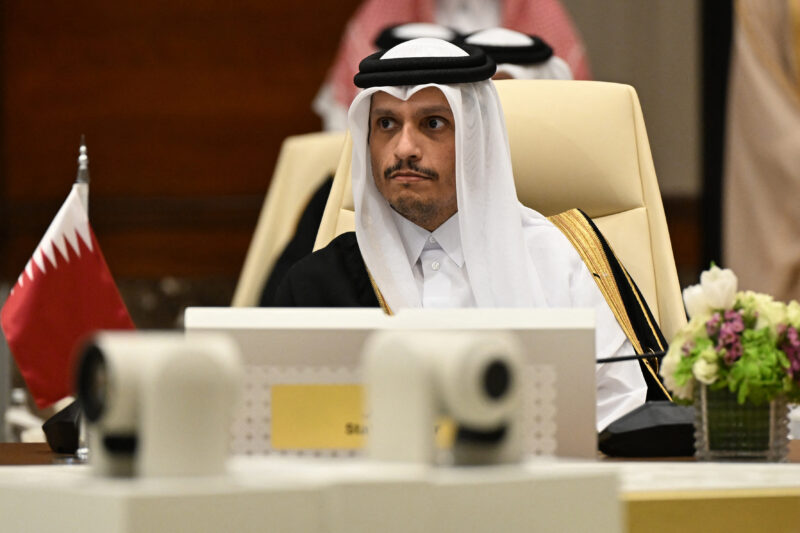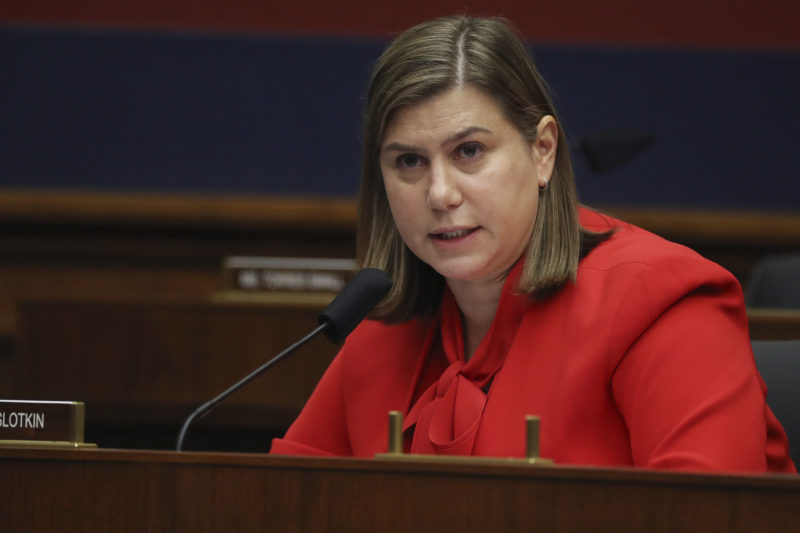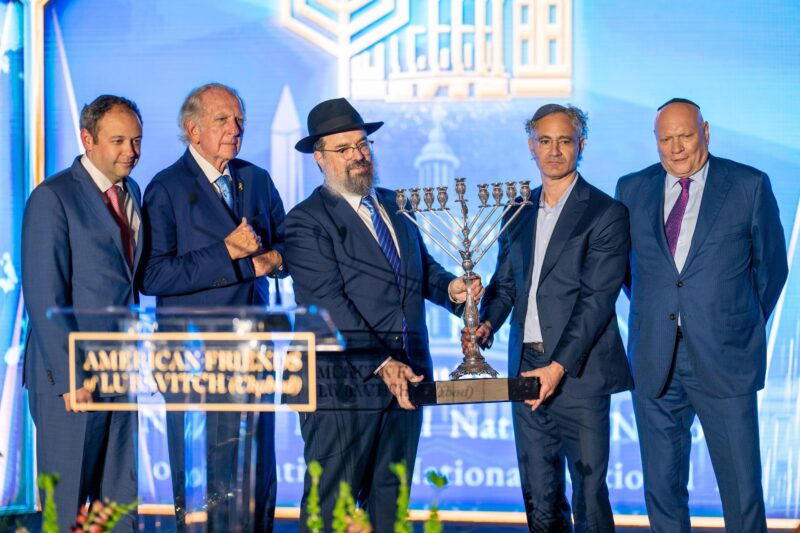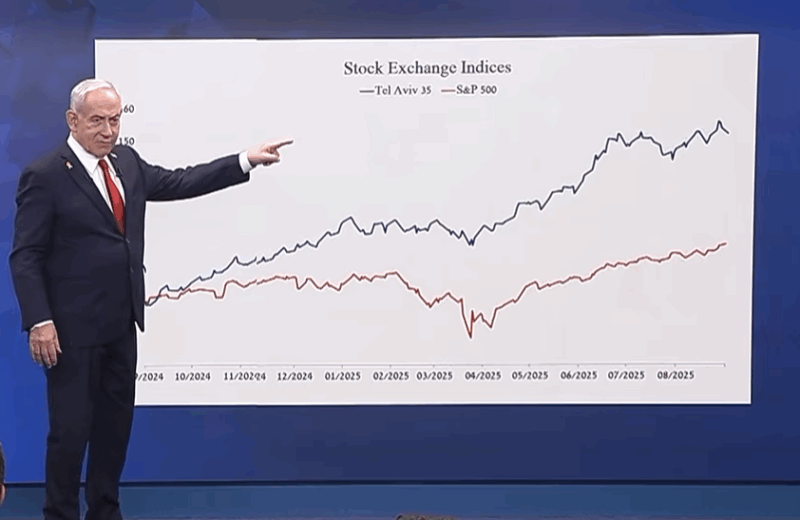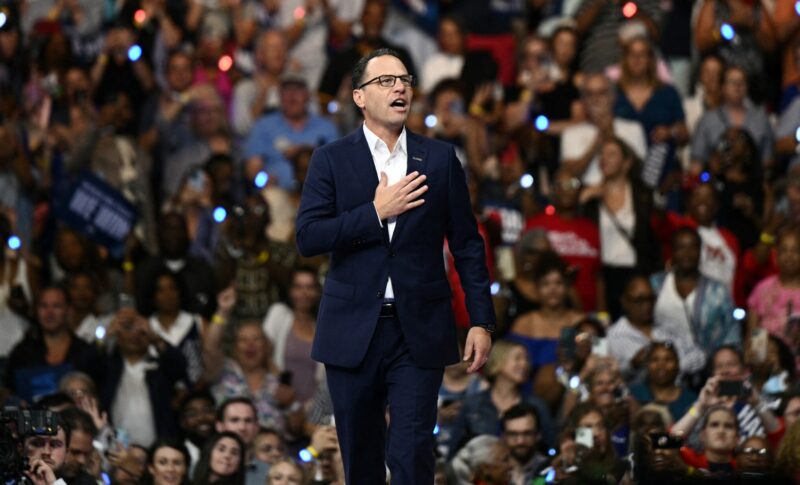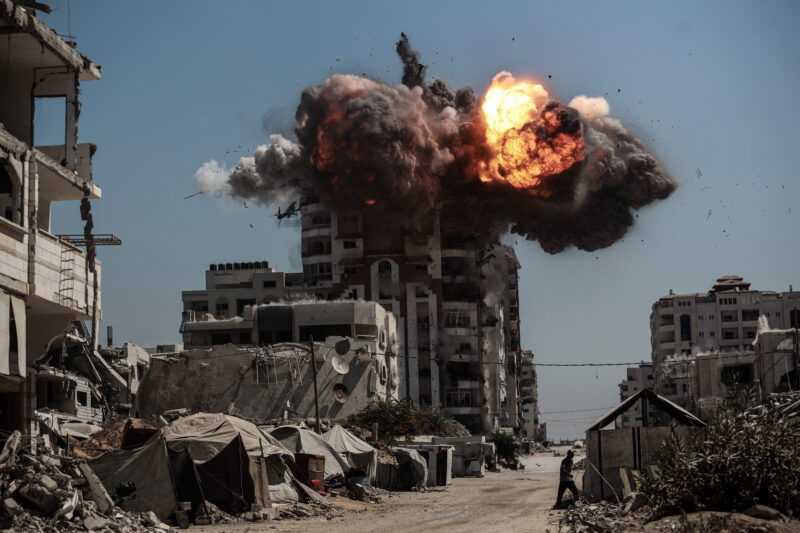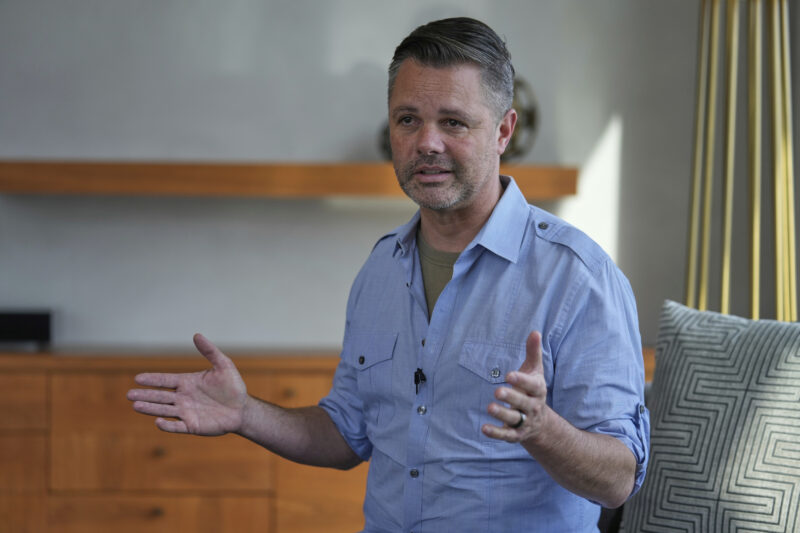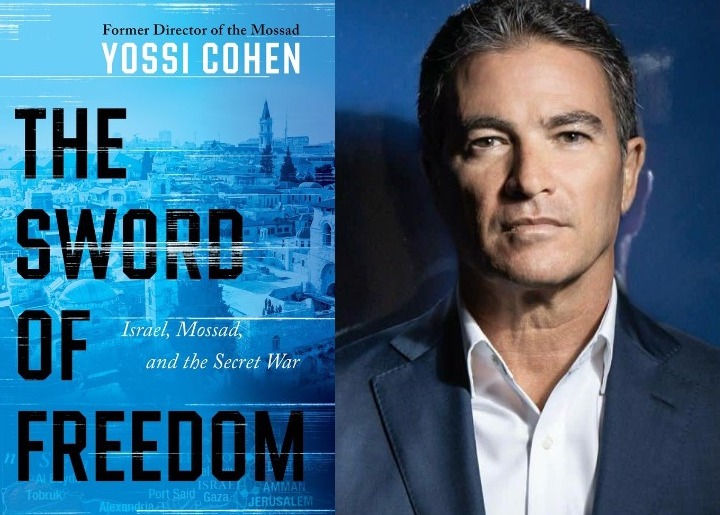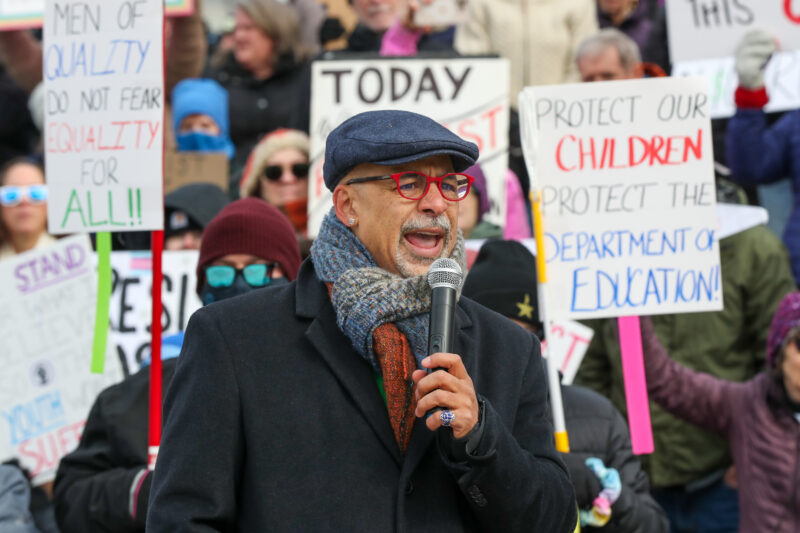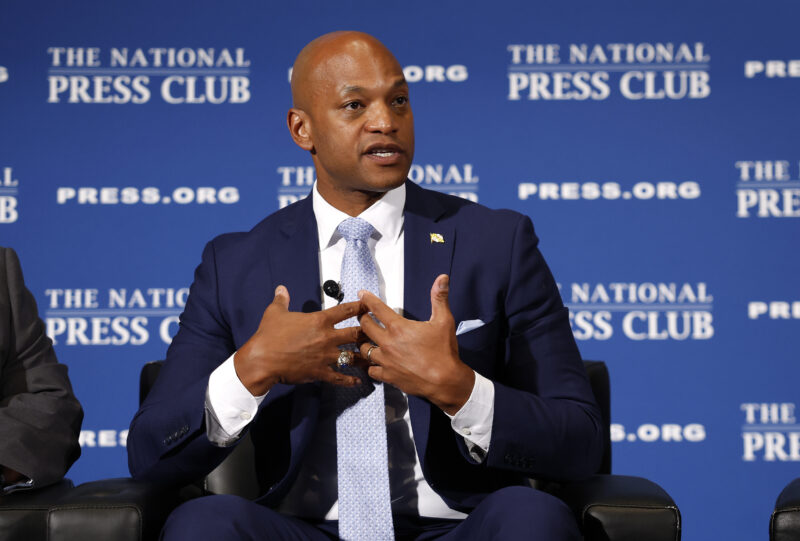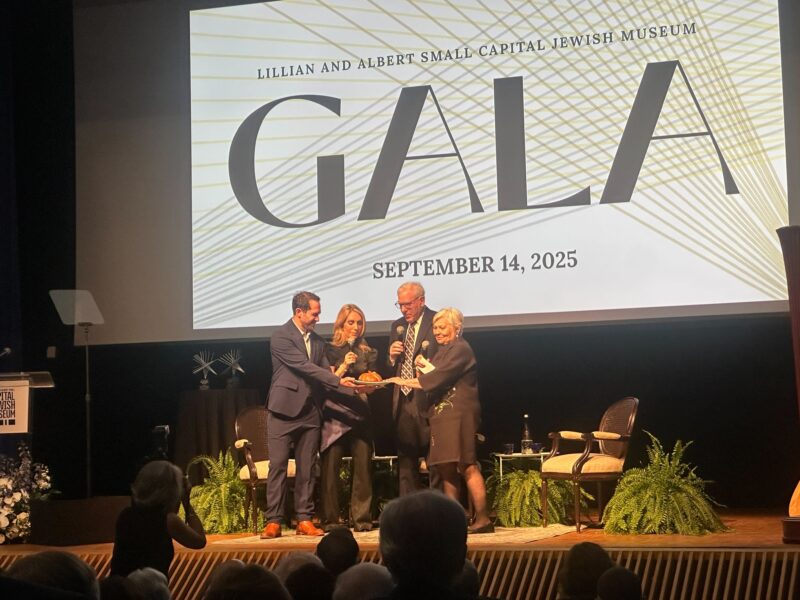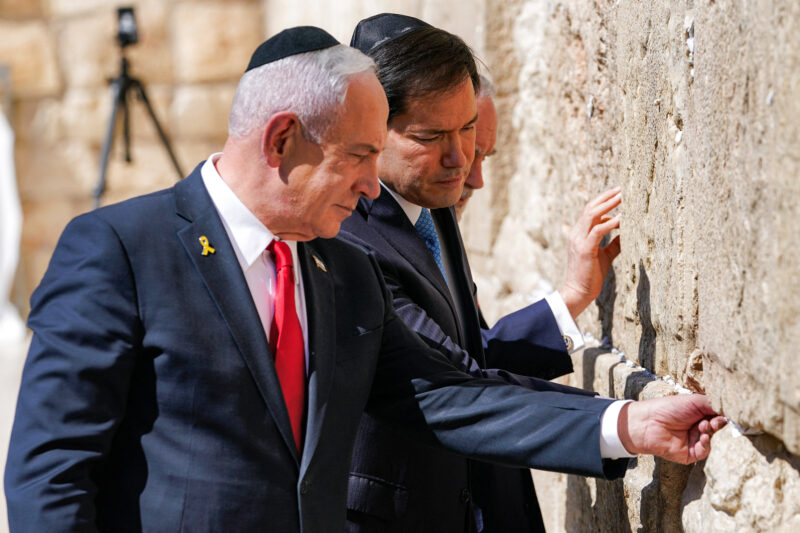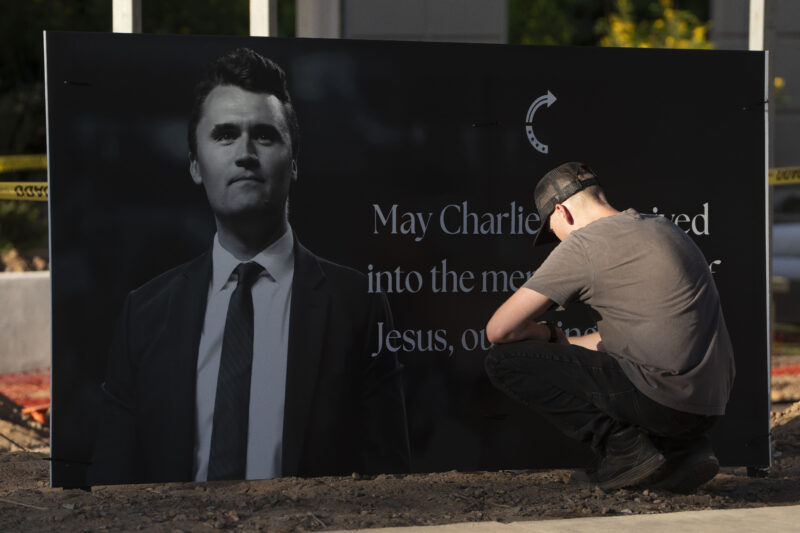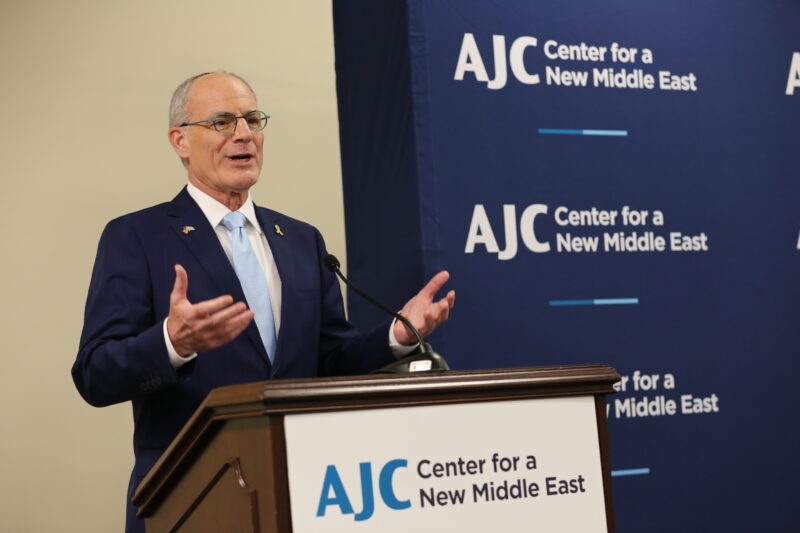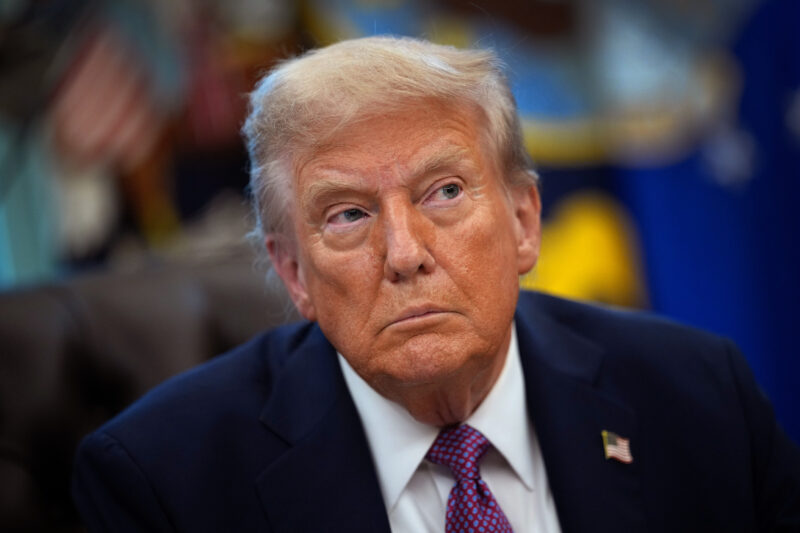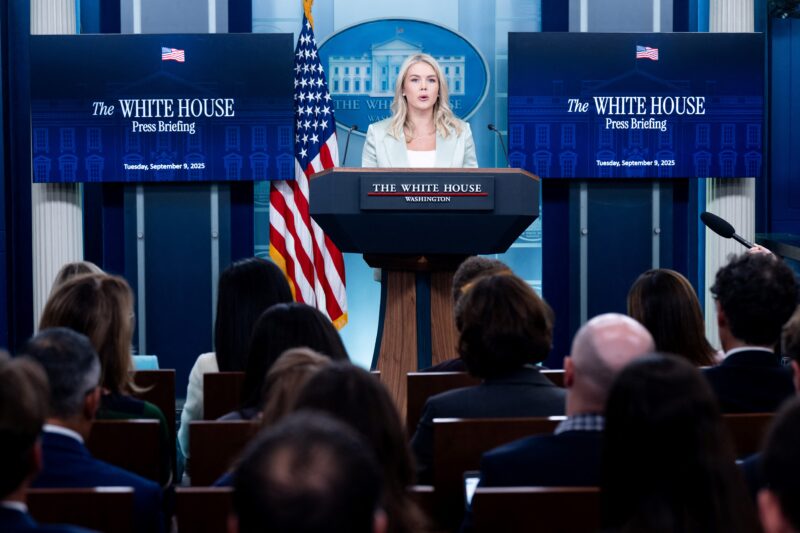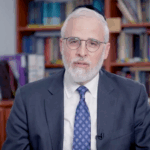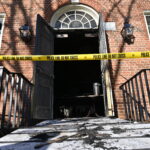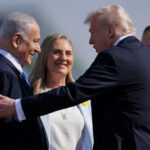Rep. Greg Landsman, after trip to Israel, reiterates call for release of hostages
The Ohio Democrat stressed the impact of the continued hostage crisis on the Israeli psyche: ‘The country cannot heal and move forward until the hostages are home’

Ariel Hermoni
Rep. Greg Landsman (D-OH) and Israeli Defense Minister Yoav Gallant
Amid escalating tensions between Israel and Hezbollah, and as the U.S., Qatar and others apply pressure on Hamas to accept a cease-fire agreement that would free the remaining 120 hostages being held in Gaza, a bipartisan delegation of nine legislators traveled to Israel last week.
It was against that backdrop that the House members, led by Rep. Steny Hoyer (D-MD), met with Israeli officials and traveled to the southern Israeli communities devastated by the Oct. 7 Hamas terror attacks. Rep. Greg Landsman (D-OH) spoke to Jewish Insider shortly after returning to Ohio after the four-day mission.
The following interview has been edited for length and clarity.
Jewish Insider: Tell me about the trip — what stood out to you?
Rep. Greg Landsman: We went down to Kfar Aza, where I had been in August [prior to the Oct. 7 attacks], and a woman by the name of Chen — she helps show people around, and she did with our group in August — she’s one of a dozen or two dozen people who are back, and in large part, she’s there because she wants to be there for folks like us. And she took us around. And you get a better sense for just how awful the murders were. When people say innocent Israelis were slaughtered, it’s not an exaggeration, and tortured, and just the devastation that comes with, I believe in Kfar Aza, it was 64 people who were slaughtered and murdered, gunned down in front of one another, and dozens more who were taken hostage.
It’s a reminder of why the country is [as] traumatized and angry and exhausted as they are, and why defeating Hamas — and by that, I think everybody means and understands that to mean destroying [Hamas’] military capabilities and its ability to govern so that the Palestinians and the Israelis and everyone else can move forward without such a terrorist organization that has done such damage, not only to Israelis, but to Palestinians over more than two decades.
JI: You’re one of the few legislators who’s been here multiple times since October 7.
You were last here in February, right? What differences did you notice this time around?
GL: When I was there in February, there was talk of the Rafah incursion and destroying these final battalions. And there was, I think, real hope that there would be another cease-fire. There
was clearly a commitment from everyone I spoke to, including the prime minister and the minister of defense, that they have to get the hostages home. The country cannot heal and move forward until the hostages are home. The humanitarian situation [in Gaza] was problematic, very problematic in February, in the sense that there was really just the one point of entry and a whole host of issues internally inside Gaza.
A lot of the trauma was palpable, obviously, in Israel, and the anger and sadness. There [were] big questions as to how the IDF would be able to destroy these final Hamas battalions without hurting innocent people. And they talked about the plan to separate some Palestinians and the million folks that were in the Rafah area out of Rafah, that there would be no incursion until that was done, and that they had become even more surgical in their pursuit of Hamas and these battalions. And now, my understanding is that there’s only about 30,000 to 40,000 folks left in Rafah, and that the IDF is weeks away from being able to say that the Hamas battalions have been destroyed in the sense that they’re no longer in a position to do real damage in Gaza or to Israel, and that a sufficient amount of the tunnel infrastructure has been destroyed, so that the capabilities of Hamas have been sufficiently diminished, and major military operations can can wind down. And then they did so, again, in a very surgical way. There was obviously that horrible situation where a few weeks ago, several Hamas leaders were targeted in an attack. A fire or explosion happened several blocks [away] but nearby, and there were civilians tragically killed. So, it’s obviously not without its tragedy, as has been the case with every aspect of the war.
The prospect of major operations coming to an end is very real and will make an enormous difference. It will allow for the humanitarian aid to continue to come in, and hopefully we’ll deal with some of the issues. Internally, there’s obviously still very serious issues inside Gaza, with the U.N. being able to distribute despite the fact that they now have daily calls. COGAT, the Israeli lead on humanitarian efforts, and the U.N. and all of the other partners get on a call at 8 p.m. every night. So there have been such enormous improvements since my February trip in terms of the aid
There are now six points of entry: two in the north, one in central Gaza and two in the south plus the new maritime entry point. And once the partners inside are able to distribute more quickly, the better. And once that happens, that will make a huge difference. But [the Israelis] clearly have a plan to finish with the objective to destroy Hamas’ ability to hurt folks and to ever govern again. Ultimately, there will be the day after, and the day after seems to be around the corner.
Nothing of any substance can happen if Hamas is still in charge, but that appears to be less likely that they will be and so I’m much more optimistic that we will get to a place where the Palestinians are leading and running civil society with enormous support from the international community, and particularly Arab countries, and that Israel will provide the necessary security, but ultimately, we will be on the path to peace.
Now that does require a lot of things, of course, and one of them is for Hezbollah to stand down. The situation in the north obviously has gotten worse since my trip in February. Hundreds of thousands of people have been evacuated. They have not been able to go back to their homes, and as you’re watching not just rockets, but anti-tank explosives hitting and destroying homes, Israeli homes, you understand why the evacuation [has happened.
The international community, the United States, everyone is going to have to turn its focus to Hezbollah and Iran and say, ‘Enough. Stand down. Stop with the attacks. Stop with the provocation of war.’ A war would be catastrophic for everyone. And it’s very straightforward [and] less complicated than Gaza. It just requires Hezbollah to, one, stop attacking Israel and two, to sit down and agree to a new, updated cease-fire, and that’s going to hopefully include the Lebanese army and a clear message from the international community and the United States that this will not be tolerated, that we are not going to allow the region to slip into into a larger conflict and ultimately pull everyone into a global, catastrophic war. We just won’t let it happen.
JI: You were here during a crazy week. There was so much happening in the last handful of days. I’m curious what you were hearing about Hezbollah in your meetings here, because really the conversation has very much shifted.
GL: The only thing new is that the attacks become more frequent and more severe, and it is a huge issue. And the sooner the major operations in Gaza can conclude, the better. And the sooner that the world, the international community, engages on this and says, ‘This is a very easy cease-fire. This is a much more straightforward cease-fire, Hezbollah has to stop.’ There is no Israeli aggression. Everything Israel has done [in the north] has been defensive. They’re trying to stop Hezbollah from continuing to attack. And what isn’t new is that Hezbollah has an enormous amount of not just rockets, but precision-guided missiles. This would be a catastrophic event, and it would pull in the global community. It just can’t happen. It just cannot happen. And so that’s going to require the U.S. and others to be very, very clear and very, very strong in the coming weeks and months.
JI: On Amos Hochstein, one of the key messages that he delivered when he was in Lebanon last week was that if the attacks from Hezbollah didn’t stop, Israel could very well launch a smaller operation that would have U.S. backing. That was striking to me, because that’s a real warning. It’s not just Israel, that’s Israel with the sign-off from the U.S.
GL: I mean, look, deterrence first, but they have to understand that everyone is prepared and willing to act, and the only thing that is necessary to end this violence in the north is Iran and Hezbollah standing down. That’s it. They just have to stop. And I don’t think people will feel comfortable going back to their homes — hundreds of 1,000s of people going back to their homes — until that happens, and [there is] an updated agreement. This is an opportunity for the Lebanese government and army to be heroes and for other Arab countries to be heroes.
Can I just say one thing about the hostages? It is clear that the country can’t move on until hostages are home. And the only thing standing in the way is [Oct. 7 mastermind Yahya] Sinwar and Hamas in Gaza. Everybody else wants a cease-fire. The Israelis want to cease-fire. The Americans want a cease-fire. Hamas outside of Gaza wants a cease-fire. Everyone wants a cease-fire, and [Sinwar] thinks that these hostages are all he has. He can surrender and give up the hostages, and who knows? Maybe end up living on an island somewhere? I don’t know, but the country won’t heal until the hostages are home. We got assurances from every single Israeli official that we spoke to [that a hostage release] was a top priority, and the only thing standing in the way is Sinwar.
JI: You were one of only two Jewish members of Congress on this CODEL. What was that like on a personal level? On a personal level, how did you take in, especially when you were down south, what you were seeing and hearing and experiencing?
GL: I think it’s more me as a father. [My wife] Sarah and I have a 12-year-old son and a 14-year-old daughter, and there are all these kids that have been killed. I think it was in Nir Oz, [there was] a mom. They were in their safe room, [and] these safe rooms [were] bomb shelters turned into death traps. And it was a 48-year-old mom holding her, I believe, 14 or 15-year-old daughter. That’s my wife, that’s my daughter. And it’s not lost on me that there’s a 48-year-old
woman in Gaza with her 14-year-old daughter, who, because of Hamas, are too close to where this war is taking place, and they’re gone too.
I think, as a Jew, it’s more what I know is true about Jewish values, which is life matters, whether it’s an Israeli life or Palestinian life, it just matters. It matters. It matters. And getting to a place where Hamas can no longer hurt anyone, and that the Palestinian people and their enormous talent and the Israeli people and their enormous talent, that they get to live without this chaos and terror and death. And those values extend beyond the military aspects, to the humanitarian. [That’s] why it’s so Jewish to ensure that — there’s 2 million Palestinians in Gaza and only 10s of 1,000s of Hamas terrorists — to ensure that those innocent Palestinians get the food and medicine that they need, and ultimately can get to have a world in which they are deciding, they have self-determination and they have a government in Gaza that, instead of building hundreds of miles of tunnels, they’re building schools and hospitals and an economy and they are at peace. As one of the residents of Kfar Aza said to me on this trip, ‘Look, I’ve always wanted peace. I want it perhaps even more now. I don’t think we’ll talk for a while, but I want them to have peace, and I want us to have peace.’
I think it was more as a dad and as a husband. You sit down with hostage families and you understand very quickly why the country can’t move on until they’re back. If somebody had my kid…
The amount of trauma grief, it’s truly horrible, but very important for people to recognize and that everyone who is going to be engaged in the peace work when this is over, must understand the trauma that the Palestinians have endured, and the trauma that the Israelis have endured, and that trauma is going to have to be dealt with.
JI: At the same time that you were over in Israel, stateside, there was the exhibit in New York about the Nova music festival, and there were protests outside of it. It rose to such a level that you had virtually every member of Congress from the New York delegation, Republicans, Democrats, saying this is antisemitism. You had the White House saying this is antisemitism. You’ve actually been to the places where this has happened. What do you make of the protestors?
GL: It’s antisemitism because it was Jews that were murdered and tortured and raped, right? It’s just diminishing who they are in their lives and what happened to them. I think it’s more inhumane than it is antisemitic. It certainly is antisemitic. Again, it was Jews that were murdered. I spent about an hour walking around the fields [at the Nova music festival site]. When you get out there, you realize that there’s nowhere to run, there’s nowhere to hide. And that’s why so many kids were slaughtered or murdered, their bodies blown apart, and why there were so many young girls raped, brutally raped and then murdered. So yeah, it’s antisemitic, but it’s just inhumane. There’s something broken about it, truly broken.
JI: What role is there for Congress to play?
GL: I think Congress has to do several things. One is to really lead on what happens next. One is with Hezbollah and Iran, and encouraging the administration to do everything in its power to get Hezbollah and Iran to stand down. Does that mean sending the second aircraft carrier group back? Does it mean further empowering and providing support to the Lebanese army? Does it mean very clear signals to Iran that this must end? … Because we need Hezbollah and Iran to stand down. But for Iron Dome and David’s Sling, what happened on April 13 and April 14 would have been catastrophic. Iran’s attack, hundreds of missiles and rockets and killer drones simultaneously launched at Tel Aviv and Jerusalem. It would have been catastrophic and would have pulled everyone into a global war. but for those defensive weapons and the actions of the Americans and the Israelis and the Jordanians and the British.
We have to stop the further escalation, and that means Iran and Hezbollah must stand down. They must stand down and be marginalized in the region. Moving forward, the second is ensuring that our partners in Israel have everything that they need to end the major military operations in Gaza, that they have everything they need to get the hostages home with an agreement or not. They have to come home. They have to be free.
And the third, that we provide ongoing, substantial leadership for all of the post-conflict opportunities to put these two peoples, these Palestinians and Israelis, everyone in the region, on a path to peace, and that means helping to support efforts to not just rebuild and support reconstruction, and ensure that it happens, but that there is Palestinian leadership that’s running the Strip and making sure that the schools reopen and that the water is running, and all of those things, and that these Arab countries that have such invested interest in peace and stability are investing in not just the reconstruction efforts, but in the peace process.
I have a bill to create a standing commission on Middle East peace and stability, similar to the select commission on China, so that there’s ongoing congressional leadership, but to do it in a way that isn’t contingent on any one leader, that it’s there for the next 10 years or more, and has members of Congress, bipartisan leadership and folks outside of Congress [and] carries a serious weight and has a serious commitment to ensure that what happens next is what has eluded everyone to date in that space.





